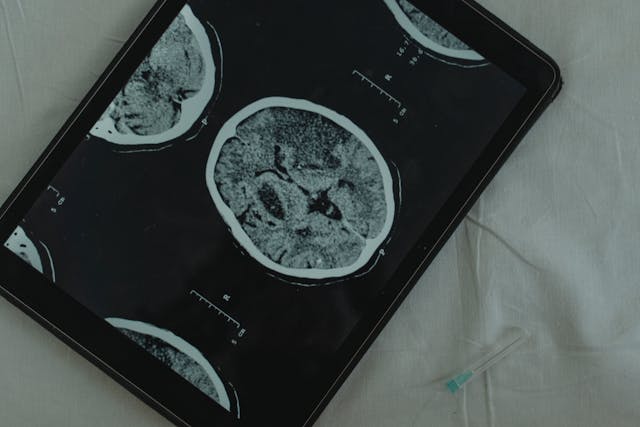Lately, creatine is all over social media, with influencers praising this supplement for everything from building muscle to relieving depression. It has also been lauded for its ability to get rid of brain fog after a restless night of poor sleep. A new study has also revealed an interesting link between creatine and brain health. The researchers suggest that using creatine for Alzheimer’s disease can potentially improve cognitive function. While the research on creatine and dementia is still in its initial stages, the results indicate potential use as a treatment in the near future.
Using Creatine for Alzheimer’s Disease
The aim of the study was to examine the results of administering 20 grams of creatine monohydrate to Alzheimer’s patients over a period of eight weeks. Their blood was monitored at the start of the study, as well as after four weeks and eight weeks, in addition to their brain’s creatine levels. The researchers also tested the participants’ cognitive abilities at the beginning of the study and then again eight weeks later. The researchers also wanted to find out how many of the participants would be compliant with taking the medication. According to their findings, 19 of the 20 patients were more than 80% compliant with the treatment. Furthermore, they learned that creatine levels in the blood increased after four and eight weeks, and increased by 11% in the brain.
Most significantly, they found that the participants’ cognitive test results improved after eight weeks of supplementation. This included improvements in their ability to sort and read, as well as attention and response. According to the researchers, these preliminary findings provide enough evidence to merit further research. According to the co-author of the study, Dr. Matthew Taylor, “We decided to do this study because there were a couple of recent studies in mice suggesting that, in a mouse model of Alzheimer’s, creatine monohydrate supplementation may be beneficial. Prior to this study, no work had been done in humans with Alzheimer’s, so it was the right time to start looking at it as a potentially beneficial supplement for Alzheimer’s.”
Read More: Creatinine Levels: When to Worry About High and Low Creatinine
The Connection Between Creatine and Brain Health

There are several theories as to why there is a link between creatine supplementation and dementia prevention. Our brains require a significant amount of energy to function. However, when people have Alzheimer’s, the metabolism of their brain energy drastically declines. Creatine plays an important role in transporting energy from the mitochondria, and increasing its levels might trigger even more energy production. According to Albert Matheny from SoHo Strength Lab, “Creatine helps to produce adenosine triphosphate (ATP), and ATP is the brain’s primary energy source. Adding more creatine to the body could, in theory, help support cognition in people with Alzheimer’s disease.” Creatine may also help treat Alzheimer’s disease symptoms, since it also decreases oxidative stress and inflammation in the body.
While they still have much to learn about all the roles the molecule plays in the brain, they believe that each of these roles helps improve cognitive function. While the results are encouraging, we are still far off from seeing creatine being used as a treatment. The research on the link between creatine and dementia is still in its very early days. The study so far has simply revealed that the majority of the participants were compliant and exhibited a notable increase in cognition. According to the medical director in the Department of Neurology at Michigan State University, Amit Sachdev, “I would not advise the use of creatine with the goal of improving cognition as there’s not yet well-established data to support this use.”
Other Potential Benefits

Creatine is mostly known for its muscle-gaining attributes. In fact, according to the International Society of Sports Nutrition, it is the most effective muscle mass supplement in the world. It has been shown to increase muscle size and lean body weight after only 5 to 7 days of use! Studies have also shown that creatine may help combat Parkinson’s disease. In mouse studies, they found that creatine prevented 90% of the dopamine level drop typically associated with the disease. It was also found to be beneficial in treating Huntington’s disease in mouse trials, where it restored the brain’s stores of phosphocreatine to 72% of pre-disease levels. Another study revealed that by increasing glucose transporter type 4 function, creatine could also lower blood sugar levels and combat diabetes.
The Bottom Line

While creatine is already well-known for its muscle-building properties, its emerging link to brain function has captured researchers’ interest. Early results from this Alzheimer’s study indicate that creatine could possibly improve cognitive function by increasing brain energy and decreasing inflammation. However, experts note that additional research is required before creatine may be recommended as a treatment for Alzheimer’s disease. For the time being, its potential is both promising and unproven. Anyone considering using creatine for brain health should wait for more evidence and visit a medical practitioner before incorporating it into their own regimen.
Read More: 5 Natural Ways to Support Your Heart and Manage Heart Failure
